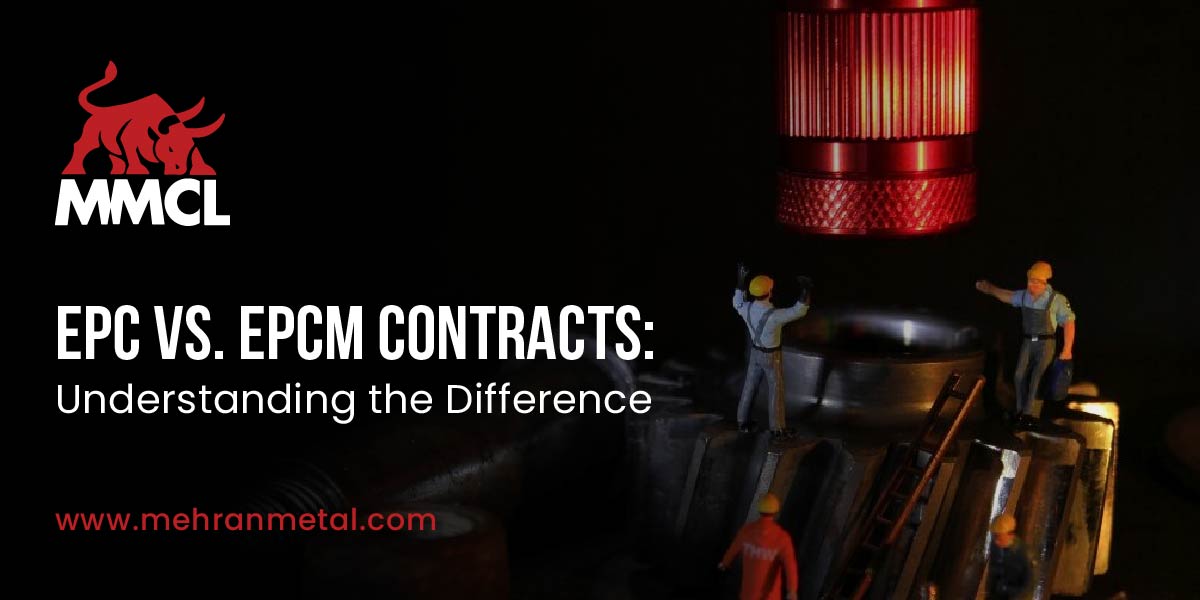EPC (Engineering, Procurement, and Construction) and EPCM (Engineering, Procurement, and Construction Management) are two standard contract structures that are frequently utilized when executing complex construction projects. Even though both contracts are widely used in the industry, they differ greatly and can have a major impact on how projects turn out. Project owners along with all stakeholders must be aware of these distinctions to be able to choose the contract type that best suits their specific needs and objectives.
What is an EPC Contract?
EPC contracts are characterized by their all-in-one character, in which all engineering, procurement, and construction phases of a project are operated through a single contractor or a consortium. Under an EPC agreement, the contractor is fully in charge of scheduling, sourcing supplies, and equipment, constructing, and handing over a turnkey project to the consumer or client. This implies that the contractor endures the obligation of accomplishing the project within the allotted budget and timeframe, sometimes with penalties for delays or cost overruns.
Advantages of EPC Contracts:
-
- Single point of responsibility: By collaborating with a single contractor, the project owner can streamline communications and cut down on coordination efforts.
- Simplified project administration: The problem-solving and decision-making operations tend to be less time-consuming and more productive when a single contractor is in charge of everything.
- Less risk for project owners: Project owners can anticipate a lesser likelihood of disagreements and disputes stemming from design errors, poor procurement choices, or construction-related challenges, as the EPC contractor bears full contractual responsibility.
- Predetermined budget and timeframe: EPC contracts frequently incorporate a predetermined cost, which gives the project owner more control over costs. Additionally, established timeframes guarantee timeline compliance.
What is an EPCM Contract?
EPCM contracts, as opposed to EPC contracts, feature a division of accountability between the contractor and the project owner. The contractor is in charge of providing engineering expertise, assistance with procurement, and construction management solutions, while the project owner directs and oversees all aspects of the project, functioning as an employer. Under EPCM contracts, the contractor offers technical expertise and direction, functioning as a supplementary member of the project owner’s team.
Advantages of EPCM Contracts:
-
- Flexibility and control: Throughout the project’s lifespan, the project owner retains absolute authority in decision-making and remains fully accessible.
- Expertise and knowledge transfer: The project team benefits considerably from the concentrated engineering and construction management capabilities that EPCM contractors bring to the table.
- Cost transparency: By regulating every aspect of the construction and procurement process, the project owner has access to all financial details which encourages transparency and cost conservation.
- Competitive procurement: Through the adoption of EPCM contracts, the project owner can communicate directly with vendors and suppliers, perhaps securing favorable agreements at more affordable rates.
Choosing the Right Contract for Your Project:
Choosing between EPC and EPCM contracts is a crucial decision that will ultimately have a considerable impact on the outcome of your construction project. While EPC contracts deliver a more streamlined and turnkey solution, they can incur greater contractual costs. EPCM contracts, on the contrary, provide project owners with greater authority and transparency while demanding a greater degree of engagement in project management.
When making the choice, consider the following factors:
-
Project Complexity:
Evaluate the level of expertise requirements and the complexity of your project. For large-scale, complex initiatives where only a single contractor can effectively manage every aspect, EPC contracts are frequently preferred. An EPCM contract can be a better fit if your project is small-scale or demands advanced expertise.
-
Risk Allocation:
Determine your risk tolerance and the degree of responsibility you are willing to assign to the contractor. By embracing complete ownership and responsibility for the project, the contractor under an EPC contract eliminates the risk for the project owner. In contrast, the project owner in an EPCM contract bears higher risks and responsibility but also possesses more influence over the decisions and outcomes of the project.
-
Project Control:
Consider your preferred level of project control. EPC contracts offer a turnkey solution in which the contractor manages the majority of the tasks involved in the project. An EPCM contract might be a better option if you’d prefer immediate authority over the project, such as appointing vendors and navigating procurement options.
-
Budget Control:
Assess your budget and figure out appropriate cost-control measures. EPC contracts occasionally include an established price, providing cost stability to the project owner. EPCM contracts require direct engagement in procurement and construction management, enabling greater transparency and cost control.
-
Time Constraints:
Determine your project’s schedule and urgency for completion. EPC contracts usually ensure timely project delivery with a set timeline and penalties for delays. Conversely, EPCM contracts might present greater flexibility and let project owners take direct control of the project’s schedule.
-
Expertise and Resources:
Review the accessibility of in-house expertise and resources for project management. Project owners bound by EPCM contracts must have a skilled workforce to supervise and coordinate the construction phase. An EPCM contract can be feasible if you have the necessary expertise and resources. If not, an EPC agreement that offers a complete solution together with contractor-supplied knowledge would be a preferable option.
The ultimate choice between EPCM and EPC contracts will depend on the particular requirements, objectives, and constraints surrounding your project. To guarantee an appropriate contract decision that is in line with your unique project needs and objectives, it is advised to carefully consider the aforementioned factors and conduct discussions with potential contractors or construction management entities.
Final Remarks:
To summarize, EPC and EPCM contracts reflect two distinctive approaches toward project management. Understanding their differences, benefits, and constraints allows project owners to make informed judgments about which contract type is best suited to their particular project requirements and objectives. Eventually, the successful completion of a project depends on efficient communication, teamwork, and project management, regardless of the contract type.

